
Cryopreservation at Feto IVF Fertility Center in Coimbatore offers the opportunity to freeze and store embryos, eggs, or sperm for future use. This cutting-edge technique preserves reproductive material at extremely low temperatures, maintaining its viability for years, and provides flexibility for those planning future pregnancies or undergoing fertility-impacting treatments.
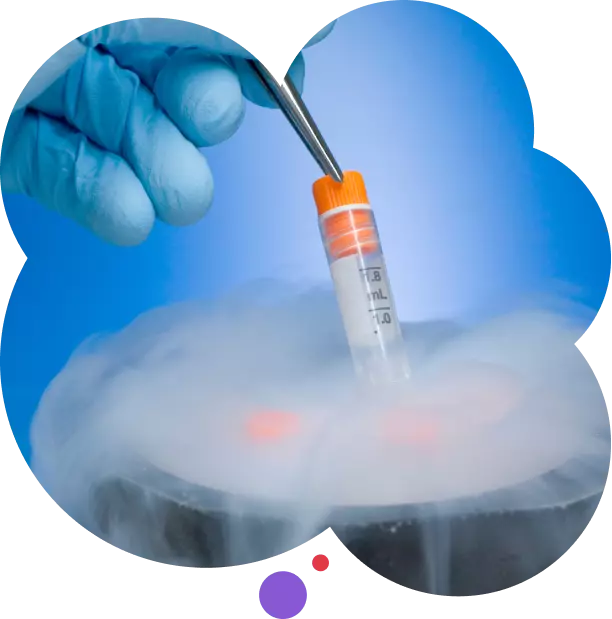
Cryopreservation is a revolutionary technology used to preserve eggs, sperm, embryos, and ovarian or testicular tissue for future use. This process involves cooling these biological materials to very low temperatures to halt their metabolic and chemical activities. By doing so, cryopreservation allows us to store and safeguard reproductive cells and tissues for extended periods without compromising their viability.
Cryopreservation is commonly used in fertility treatments, allowing individuals or couples to safeguard their reproductive material for future use. It is especially beneficial for those undergoing medical treatments like chemotherapy, which can affect fertility, or for individuals who wish to delay childbearing for personal or professional reasons.
At Feto IVF, we employ Cryopreservation in coimbatore with advanced vitrification methods that minimize ice crystal formation, ensuring the highest survival rates and maintaining the quality of the preserved cells for successful future fertilization and pregnancy.
Cryopreservation works by freezing reproductive materials—such as eggs, sperm, or embryos—at extremely low temperatures to preserve their viability for future use. The process begins with the collection of high-quality reproductive cells, which are then treated with cryoprotectants, special solutions that prevent ice crystal formation, which could damage the cells during freezing.
The treated samples are then subjected to a rapid freezing process called vitrification, which instantly cools them to -196°C using liquid nitrogen. This method effectively halts all cellular activity and metabolism, preserving the cells’ structure and function.
The frozen samples are stored in secure cryotanks until they are needed. When the time comes, the samples can be carefully thawed, and if embryos or eggs are used, they can be fertilized and transferred during an IVF cycle.

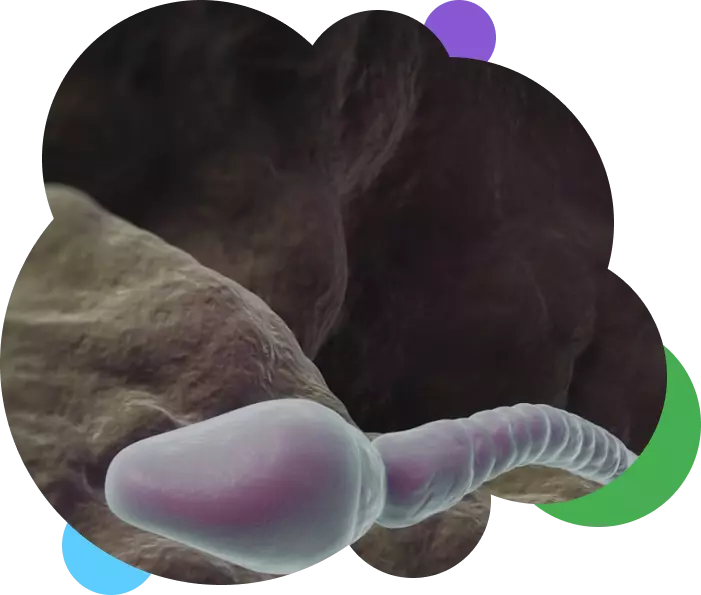
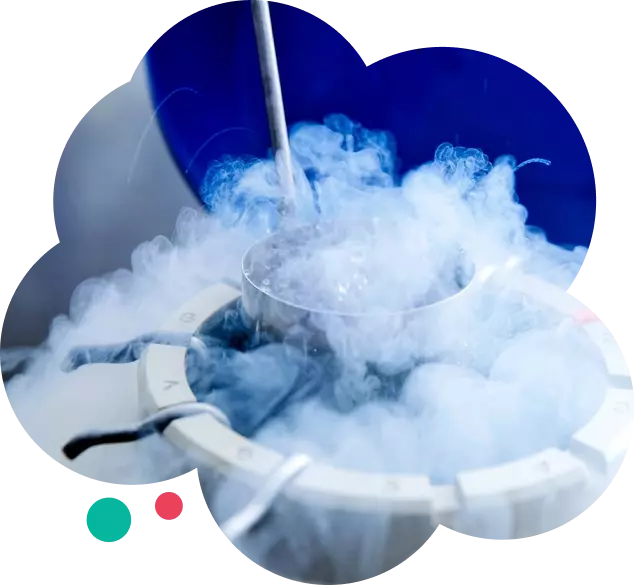
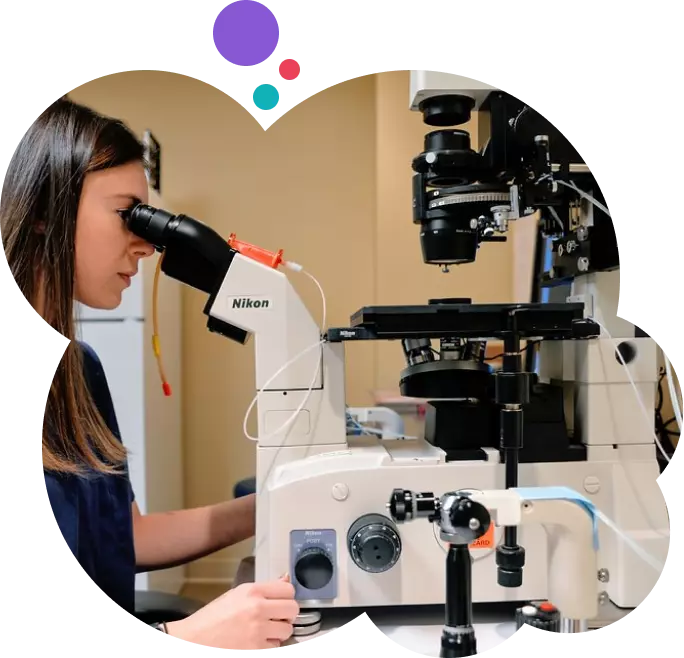
Cryopreservation is a well-established and safe technique. Advances in technology and techniques have significantly improved the success rates of this process. At Feto IVF, we use state-of-the-art equipment and follow stringent protocols to ensure the highest quality and safety standards for our patients.
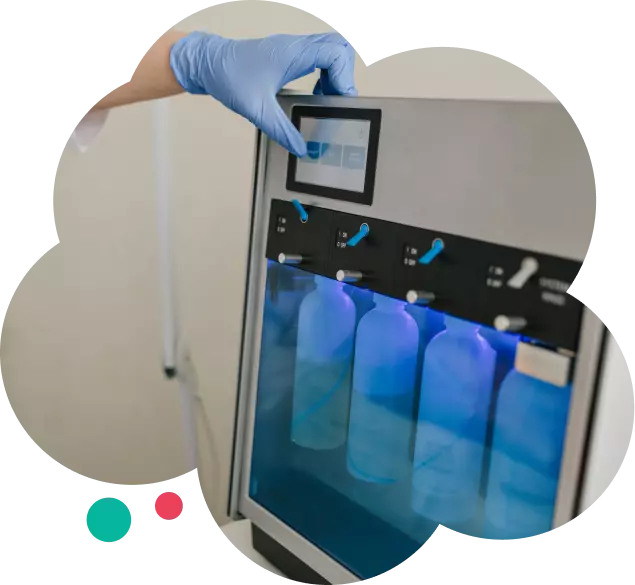
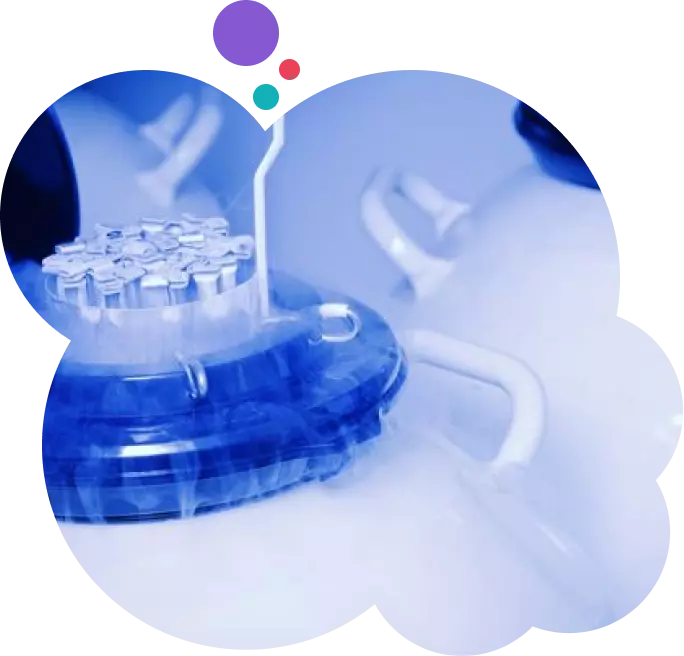
Cryopreservation is a powerful tool in modern reproductive medicine, offering individuals and couples greater flexibility and control over their reproductive future. Whether you are looking to preserve your fertility due to medical reasons, delay parenthood, or enhance your chances of a successful IVF cycle, cryopreservation can play a crucial role in achieving your family-building goals.
We use innovative cryopreservation procedures to guarantee our patients receive the best possible treatment. Whether you want to freeze eggs, sperm, or embryos, our skilled fertility specialists will work directly with you to create a plan that is tailored to your specific needs and goals.
If you have any questions about cryopreservation or how it can benefit you, please don’t hesitate to contact us at Feto IVF, Coimbatore. Our team of experts is here to provide you with personalized guidance and support.
Cryopreservation can be categorized into two main types: slow freezing and vitrification. Slow freezing gradually lowers the temperature, allowing ice crystals to form slowly, while vitrification rapidly cools cells, transforming them into a glass-like state without ice crystal formation, which is more effective for preserving cellular integrity.
The best age to freeze eggs is typically in a woman’s late 20s to early 30s. This age range is optimal because women generally have a higher quantity and quality of eggs, which increases the chances of successful fertilization and implantation when the eggs are eventually used.
The primary difference between IVF and cryopreservation is that IVF involves the fertilization of eggs and sperm to create embryos, while cryopreservation is the process of freezing and storing these embryos, eggs, or sperm for future use. Cryopreservation can be a part of the IVF process, allowing for the preservation of reproductive materials.
Cryopreservation of eggs and sperm involves cooling these reproductive cells to very low temperatures to halt metabolic processes and preserve their viability. This technique enables individuals to store their eggs or sperm for future use, particularly beneficial for those undergoing treatments that may affect fertility or for those wishing to delay parenthood.